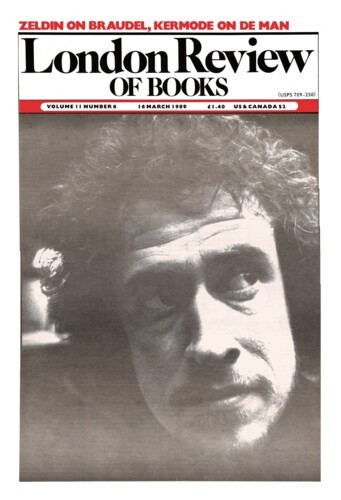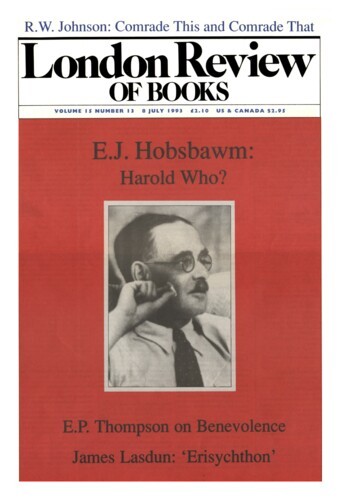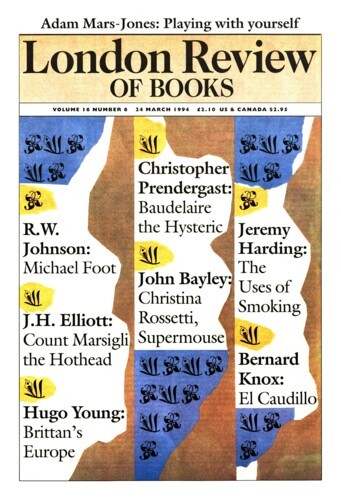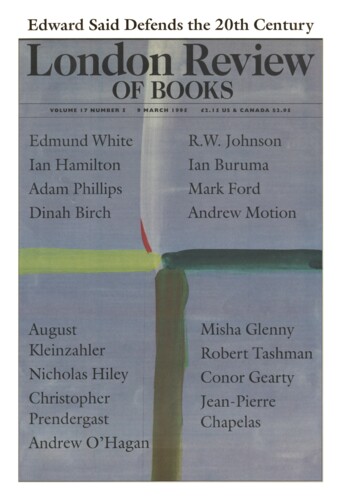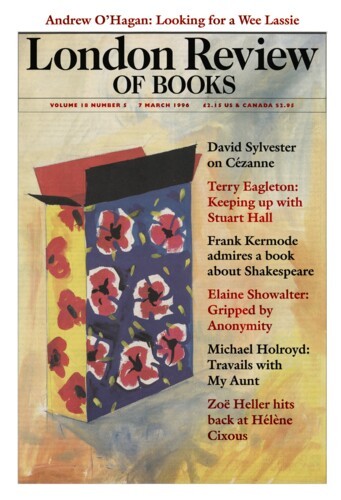Making the world
Christopher Prendergast, 16 March 1989
In his Souvenirs sur Paul Cézanne, Emile Bernard records a conversation in which he raised with Cézanne the topic of Balzac’s Le Chef-d’Oeuvre Inconnu – the story of the fictional painter Frenhofer, who spends ten years trying to create the perfect picture of a woman but ends up painting what, in the story itself (which mixes fiction with 17th-century fact), the young Nicolas Poussin describes as ‘nothing [ … ] but confused masses of colour contained by a multitude of strange lines, forming a high wall of paint’. Cézanne, who, Gasquet informs us, had a copy of the book tout fripé, sâli et décousu almost permanently by his bedside, said not a word but rose to his feet, pointing agitatedly, and tearfully, at himself: il se leva de table, se dressa devant moi, et frappant sa poitrine avec son index, il s’accusa, sans un mot, mais par son geste multiplié, le personnage du roman. Il en était si ému que des larmes emplissaient ses yeux. More eloquent testimony to the enduring power and relevance of Balzac’s story could scarcely be imagined. In the essay Anthony Rudolf appends to his new translation, this anecdote figures as exemplary, and serves to buttress the case for Balzac’s story as exemplary anticipation of the adventure of modern painting.’
